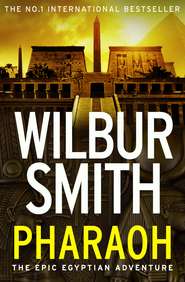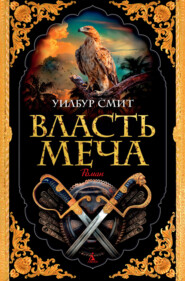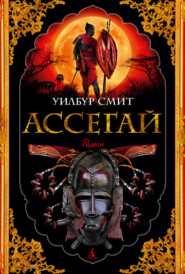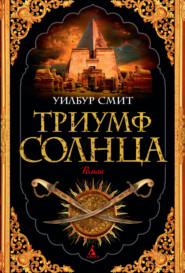По всем вопросам обращайтесь на: info@litportal.ru
(©) 2003-2024.
✖
Golden Lion
Автор
Год написания книги
2019
Настройки чтения
Размер шрифта
Высота строк
Поля
For all his lack of nourishment the jailed sailor was surprisingly strong. Years at sea, hauling on the sheets and climbing the shrouds had seen to that, and now he clawed at Pett’s hand, trying to tear it away from his own neck. But William Pett was a man of experience. He had done this many, many times before and knew that he only needed to hold on a little longer. Just a little longer.
Pett was also a connoisseur, a collector of other men’s deaths. In his mind he ordered them: the peaceful and the violent; the many who met their ends with terror and the very few who were composed and tranquil at the last. A less elevated distinction divided those whose bowels loosened at the moment of passing and those who remained unsullied. Had Pett given the matter the slightest thought in advance, he would have wagered that the lack of any material in a starving man’s digestive system would tend to suggest a clean death. But no, though the sailor’s defecation was only modest in quantity, it wanted for nothing in stench. At the very same moment, the hands on Pett’s hand relaxed. The man beneath him shuddered like a spent lover and went still.
Pett held on still, gasping for breath in that dank, airless place. The dead man convulsed one last time, his heels tapping out a ragged beat against the deck, and then it was over. You did well, the Saint whispered in his mind. But you are on a ship. Next time, thrust a sharp sliver of wood, or a metal pin through the ear canal into the brain. You will achieve a quick kill and no telltale signs left behind to arouse suspicion.
The Saint was right, Pett thought, as he often was. No matter now. It was time to prepare for the moment of discovery.
He would have preferred to put the dead man up against the side and make it look as though he had died in his sleep, but Pett’s chain would not let him push the body up against the far wall of the cockpit. So he rolled the body over and it lay face down in the filth, the dead man’s befouled petticoat breeches the first thing anyone would see when they brought a light into the place.
Then Pett scrambled back to his own corner by the cable tier and waited.
Hal ascended the mainmast with lithe assurance. As he dropped into the bucket of the crow’s nest just below the top of the mast he looked up at the thin cloud skating across the moon. His breath was a little shorter than it had been when he was a lad and making the climb to the masthead several times a day. But it was still just as much of a pleasure to drink in the cool clean air up where the breeze was an elixir, cut only with the scent of the tarred lines, the musty smell of the sail canvas and, now and then when the wind was right, the sweet, spicy aroma of the soil of Africa itself wafting across the ocean from the coast.
He peered north into the gloom for a sign of the Dutchman that had last been seen three leagues off the Bough’s stern. A glimpse of white caught his eye, where the cloud had torn to let the last glimmer of moonlight through. Hal knew his eyes were as good as those of any man aboard – that was one reason he had chosen to look for himself, rather than rely on another to do it – but as he searched the ocean the clouds closed ranks once more, the darkness returned and then there was nothing to be seen.
‘Where are you then?’ he murmured.
Dawn came, a bloodstain on the hem of night’s gown as the last of the northerly played out across the canvas and the Bough slowed to a crawl, then drifted without purpose as she lost steerage, eventually refusing to go another yard into the south. As the sea mist settled over the surface, shrouding the ship and the waters around her in a soft blanket that muffled sound as much as it hampered vision, the Bough rolled gently in the swells. Hal might have been lulled to sleep like a baby in its cot had he not been startled by Ned Tyler calling up to him. The helmsman was asking permission to let go the anchor, for it was better to stay where they were than risk drifting blindly at the whim of the tides until they found themselves high and dry on a sand bar.
Hal felt a little guilty then, being up there like a young ensign instead of on the quarterdeck or the poop like the captain he was. But he refused to abandon the search just yet, not when every instinct told him it must be the Dutchman out there. She was a small caravel: three-masted and square rather than lateen-rigged. A captured prize most likely, taken from the Spanish or Portuguese Hal guessed, for it was rare to see such a ship flying Dutch colours. She would still be getting enough out of the breeze to keep her moving for she was only half the size of the Bough. Hal knew he had nothing to fear from such a ship, and not just because his culverins could blast her out of the water if it came to a fight.
‘Damn this truce,’ he whispered, narrowing his eyes as if they could somehow penetrate the mist and catch another glimpse of canvas. Peace now prevailed between the English and the Dutch, though Hal wished it did not. It had been a Dutch governor of the Cape Colony who had ordered the torture and murder of his father and Dutchmen who had followed his instructions to the brutal, gory letter. Hal longed for the legitimacy that war provided. For then he would be able to spill Dutch blood by the gallon in retribution for his father’s suffering.
Suddenly he fancied he caught the Dutchman’s scent in the air, a waft of fresh tar and the stale sweat of her crew, but it was gone again in a heartbeat. Aboli was right to say that Sir Francis had prepared Hal well for the responsibilities of captaining a ship. And yet there was something else too, something that even his father could not have taught him, and that was the warrior’s instinct. Hal felt that coursing through him like the blood in his veins. He could, when it was called for, be a killer. That instinct had made him leave his soft bed and the beautiful woman sleeping in it to climb up there to the masthead. It was that same instinct that alerted him to the danger now.
He had not seen the first of the cloth-muffled grappling hooks that clumped onto the Golden Bough’s deck, but Hal saw the first dark shapes coming over the side in the mist.
‘To arms! To arms!’ He gave the alarm, as the first pistols spat flames which cut through the murk, briefly illuminating the faces of the men who had come to kill them. Hal was already out of the crow’s nest. Down he came into the chaos that was enveloping them.
He thanked Almighty God for inducing the Amadoda tribesmen to sleep beneath the stars, for now they were leaping to their feet, seizing their weapons and hurling themselves into the fight. Faced by the tribesmen’s ferocity, spears and axes, the attackers must be regretting their impertinence. But even from halfway down the mast, Hal could tell that those men clambering over the Bough’s gunnels were heavily armed. Each had a pistol in hand and another pair tied with cords around their necks. As Hal glanced down he saw one of the Amadoda thrown back by the force of a pistol ball that blew a hole in his naked chest. The man fell to the deck, with the whites of his eyes rolling up into his skull.
Hal jumped the last five feet to the deck. As his feet hit the planking he suddenly realized that he was unarmed. He had not thought to pick up his flintlock pistol or his sword when he left his cabin.
‘Here, Gundwane!’ Hal turned and caught the sabre by the hilt, nodding to Aboli who had thrown it. Then he launched himself into the chaos, slashing open a man’s face, then spinning away to stab the blade deeply into another’s guts.
‘Golden Bough on me!’ he shouted, and the Amadoda cheered, as they surged forward. Others of the Golden Bough’s crew were pouring up through the hatches.
Shoulder to shoulder Hal and Aboli hacked their way into the enemy. And yet the Dutchmen still had loaded pistols and these roared, spitting out death and disaster.
One huge Dutchman whose features were masked by a dense growth of dark beard, fired his pistol then reversed it and clubbed down the black man who opposed him. Three Amadoda went down before him but then Big Daniel was there. His sword had lodged in a dead man’s shoulder, but his own raw strength was weapon enough. Daniel threw up a brawny arm to block the Dutchman’s pistol, then clutched his beard in both hands and pulled its owner’s face towards him as he thrust his own head forward, smashing the big man’s nose with a splintering crack that Hal heard even above the din of battle.
The Dutchman staggered, blood cascading down his face and beard. Big Daniel glanced to one side, retrieved his sword from the dead man’s shoulder and went at the bearded man like a butcher at a side of beef.
Hal shouted with exultation. Any advantage the Dutch may have gained with the surprise of their attack had been nullified by the speed and ferocity with which the Bough’s men had responded. Victory was still not entirely his, but even in his young life Hal had fought enough ship-board battles to know when the balance was shifting. One last effort and that shift would be decisive. He was about to utter his rallying cry when he heard Aboli’s voice call out, ‘Gundwane!’
Hal glanced across the deck and saw that Aboli was pointing with his sword aft towards the mêlée around the foot of the mizzenmast.
‘No!’ he told himself in despair. ‘That cannot be!’
Because she felt sick, Judith climbed out of her bunk, if only to find a bedpan to vomit into. That nausea saved her life. It meant that she saw the shadowy figures emerging out of the mist and clambering up the stern of the Golden Bough, climbing past the windows of the captain’s cabin. Then one of them braced his feet against the stern, pushed away to make the climbing rope swing out like a pendulum and smashed through the glass and into the cabin.
Judith was already waiting for him, dressed only in her nightgown but with her sword in hand. Her hesitation over what to wear to go aboard the Bough had saved her life, for instead of being packed in one of her trunks and stowed away in the hold, her kaskara sword had come with her in her travelling baggage and had been placed in her cabin.
The man who was first through the window had barely laid a toe on the cabin deck when he took the point of the kaskara through his throat. Judith pulled the blade away. Then as he went down she spun as nimbly as a dancer around the second boarder as he blundered past his wounded comrade. Then she aimed a savage, slashing blow across the small of his back that sliced through one of his kidneys and dropped her arm, with him writhing, screaming and bleeding at her feet.
More men were piling into the cabin now and Judith realized that she was in danger of boxing herself into a corner, for the men she’d downed had formed a barrier, partially blocking the way between her and the cabin door. She moved fast, fighting her way to the door, her sword flashing from side to side as she parried, stabbed and slashed, struggling to defend herself against the increasing number of men who now opposed her. She fended one thrust away above her left shoulder, then swung her curved sword down and across her body, backhanded, slicing deep into another man’s arm, almost chopping it in two. But amidst the mayhem Judith’s mind remained calm. Hard-fought experience had taught her that the key to survival was maintaining the ability to concentrate and calculate while others around were letting rage, fear or panic cloud their minds. Examine the enemy. Look him in the eyes. Read his mind.
Even as she fought for her life, Judith was doing these things, and what she saw in her enemies was desperation. These men were wild-eyed, haggard and starving. If she exchanged more than three or four clashes of the blade with any one of them she could feel his strength dissipating as the power in his sword-arm ebbed.
She was a child of Africa. She knew all about hunger and she knew a starving man when she saw one. Whoever these raiders were, they attacked with the savage frenzy of men who had nothing to lose. She heard the sound of gunfire and the shouts and screams of men in battle coming from the decks above and knew that Hal and his crew must be fighting for their lives too. They had been taken by surprise. The fate of the Golden Bough was hanging by a knife-edge. But if she and they could only hang on long enough for the enemy’s strength to fade, they could still triumph.
And they had to win. Judith had to survive – not for herself but for the child she carried inside her. She felt a new, unfamiliar spirit surging through her, the passionate defiance of a lioness defending her cub, and she knew that she would not – could not – give in to the men confronting her. Two more of them lay dying by the time she reached the cabin door. She sprang through it, bought a couple of precious seconds as she slammed it closed behind her, dashed to the steps that would take her up on deck and scrambled up them, waiting at any second for the clamp of a man’s hand around her ankle. None came. She ran out onto the quarterdeck, in the shadow of the mizzenmast and looked around to get her bearings and see how the battle stood.
Judith barely paused for a second, but that second was too long. She suddenly felt hands grab her from behind, one around her waist and the other locked around her neck. She was lifted off her feet and though she flailed her arms in a frantic attempt to retaliate against the man who had her in his grasp she could do nothing and her efforts just seemed to amuse her captor who was laughing as he shouted, ‘Kapitein! Kijk eens wat ik gevonden!’
Judith did not speak Dutch, but she could recognize the language well enough and it wasn’t hard to work out that he was calling out to his captain. She knew her man well enough to know that Hal would never knowingly risk her life, not even for the Golden Bough. So whoever held her held the ship.
Judith’s arms fell motionless by her side, she let her sword fall to the deck and her head slumped. The battle was lost and it was entirely due to her.
The battle fever was upon Hal. He had seen a tall, thin scarecrow of a man loom up behind Judith, realized she was unaware of this new threat and roared a warning but it was lost in the battle din. There were Amadoda and Dutchmen between Hal and Judith and he thrust into the press trying to force a way through, parrying sword blows aimed at him, striking back where he could and yelling to Judith in vain. But when he broke through the chaos of seething steel, flesh and pistol flame, he saw that he was too late. The man now had an arm across Judith’s breast, a knife to her throat and one pox-scarred cheek pressed against the black crown of her head as though he were inhaling her perfume.
In front of them stood a man whom Hal marked as the Dutchman’s captain, for he wore a silk-edged waistcoat and fine breeches rather than the canvas petticoats of most sailors. He confirmed his command by stepping forward and sweeping the broad felt hat off his head and waving it through the pistol smoke that hung over the deck. The sun had by now broken free of the eastern horizon and burned away the early morning mist and it crossed Hal’s mind that had the Dutch come any later he would have killed them before they ever stepped foot aboard. Fortune had favoured the enemy, it seemed.
‘Englishmen!’ The Dutch captain shouted, still waving the hat above his head to catch the men’s attention. ‘Stop this madness! There is no need for more blood to be spilled.’ His accent was thick but his English was good. ‘Where is your captain?’
Hal stepped forward, his gore-slick sword still raised before him, but making no attempt to use it against his adversary. Gradually, the realization spread that the battle seemed to have ended, though the reason for it ending was not yet clear to many of the combatants. Men broke off from the fight, gasping for breath, some screaming in pain. One man held his severed left arm in his right hand and was staring at it as though unable to comprehend how it had got there.
‘I am Captain Sir Henry Courtney of the Golden Bough,’ Hal announced, pointing the sword at the Dutch captain, ‘and you, sir, are a coward, to seek advantage by threatening a woman.’
The Dutchman frowned at this, then glanced behind him. ‘That woman fought like a man. Perhaps we should treat her as one … Ach!’ The captain shrugged and his face broke into a disarmingly friendly expression. ‘What does it matter, eh? Let us all just stop this senseless fighting, and talk a little sense.’
Hal was gripped by indecision. He had seen his last love, Sukeena, killed by a poisoned blade when she too was with child. She and their baby had died in his arms and he would not see Judith suffer the same fate, nor let another child of his be killed before it had ever taken a single breath.
Yet how could he yield his ship and everything he and his crew had fought so hard for? What manner of captain would that make him? Instinctively he glanced up at the quarterdeck half expecting to see his father Sir Francis standing there proud and steadfast and unafraid, his hard eyes boring into him, judging Hal against his own tall measure as he had ever done.
But there was no ghost to tell Hal what to do. The Golden Bough was his ship. He was its captain.
‘I am Captain Tromp of the Delft and now it seems …’ the Dutchman said, a smile tugging the corner of his mouth ‘… of this fine ship the Golden Bough also.’ Tromp’s men cheered at this, evoking curses from the Bough’s crew who clamoured at their captain to be released once more to the slaughter. For still more men had come from below and now stood blinking in the dawn light, clean blades and primed pistols in their hands. One word from Hal and the Bough’s deck would become a slaughter yard again. But one of the corpses could easily be Judith, his love and her infant.
‘We outnumber you five to one, Captain Tromp,’ Hal called, trying to hide the desperation he felt for Judith, hoping she would not see it either, for it was important for a captain to appear decisive and composed.
‘And yet you are not fighting,’ Tromp said. ‘Which tells me that you would do anything to save this woman from harm. And though I am sure that you are a gentleman, Captain, I suggest that the reason you stay your sword is not a matter of mere chivalry. She has your heart, does she not?’
Hal locked eyes with Judith and even by the early light of the dawn he could see the steel in them. She showed no sign of fear, only a cold resolve, as the pox-marked man with the knife to her throat growled obscenities in her ear.
‘I do not think he will kill her, Captain,’ Aboli said, breathing deeply at Hal’s right shoulder. ‘Because if he does then he knows he and all his men will certainly die.’
‘Let us carve them up, Captain!’ Robert Moone, one of the Bough’s boatswains, called.














